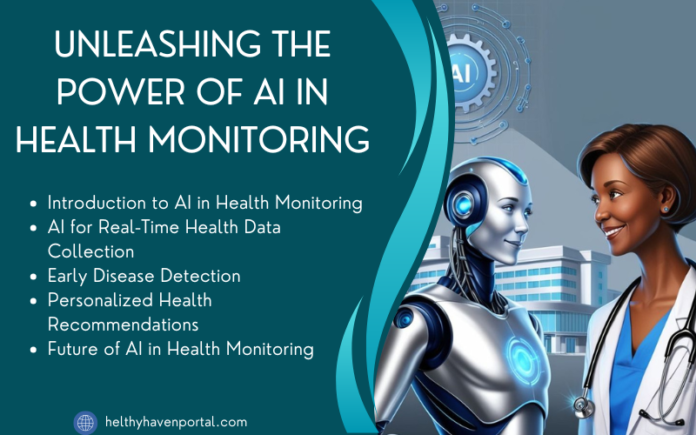Introduction to AI in Health Monitoring
AI revolutionizes the healthcare sector by coming with new and innovative ways of monitoring patients’ health. AI-based systems can scan high volumes of data in a very short time, making it easier to predict, prevent, and manage the condition. Here’s an in-depth overview about AI in health monitoring:
1. What is AI in Health Monitoring?
- Data-Driven Insights: AI uses health data to deliver actionable insights with regard to patterns that might otherwise be missed through normal monitoring methods.
- Automated Analysis: AI systems take only a much shorter time relative to humans to process complex medical information, thus making interventions happen in a much quicker pace and with a more individualized approach.
2. How AI Refines Traditional Health Monitoring?
Traditional health monitoring, most of the times, is based on periodical check-ups or self-reported symptoms. AI widens this since it allows for continuous and real-time monitoring and a proactive approach to health management.
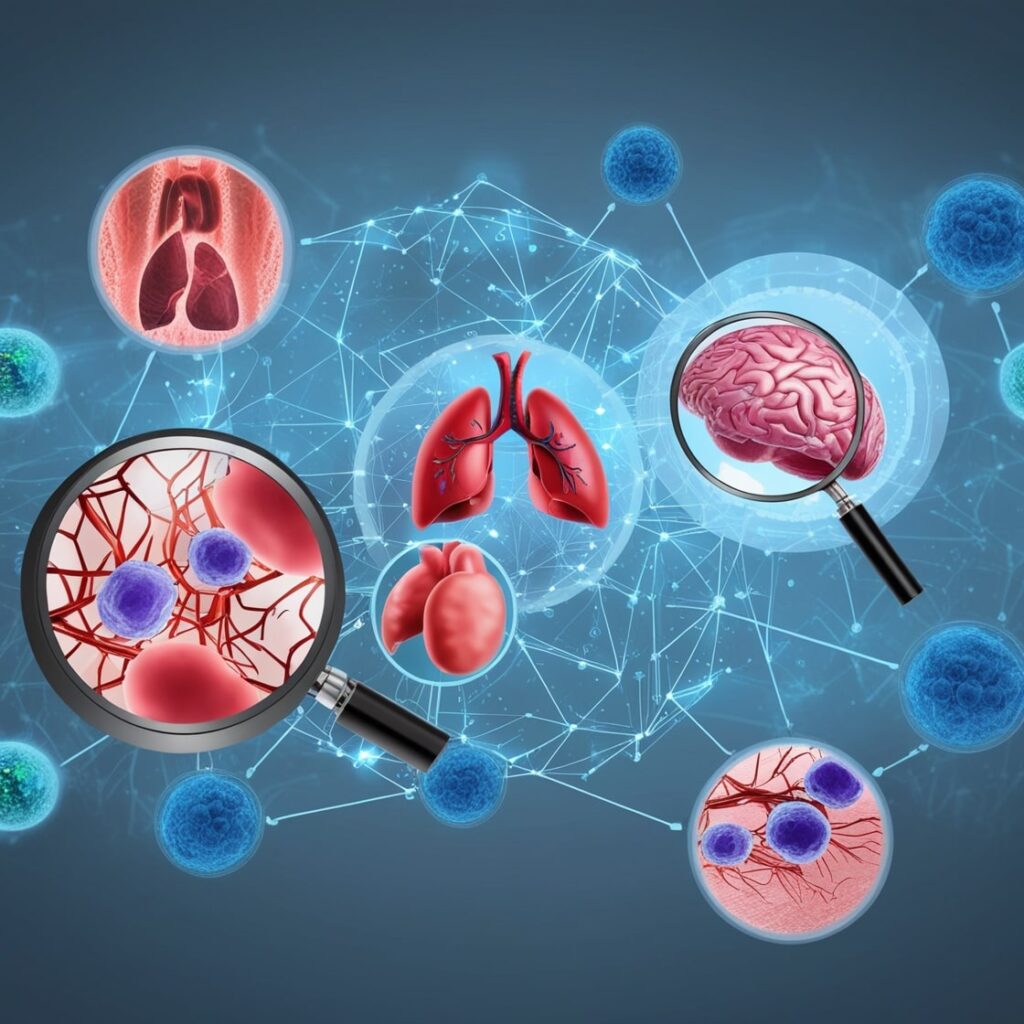
- Real-Time Monitoring: AI-based wearable like smartwatches and fitness trackers continuously monitor vital signs such as heart rate, blood oxygen saturation level, and sleep patterns.
- Predictive Health Analysis: AI would find patterns in health data that appear and forecast the possibility of any problem occurring before becoming crucial, such as risk for heart disease or diabetes, for example.
3. Highly Accurate Diagnosis
With high accuracy in processing large amounts of data, AI can determine abnormalities in patient data that would indicate an onset condition for some health problem. This makes the results much more accurate with much reduced human error.
- Less Errors: Advanced algorithms on AI minimize the chance of error in health monitoring and its diagnosis.
- Disease Detection: Models on AI can even detect early symptoms of diseases like cancer that allow health care professionals to intervene early on.
4. Benefits to Patients and Healthcare Providers
Integrating AI in Health Monitoring is likely to have fantastic impacts on patients and healthcare providers.
- For Patients: AI is able to make health care more personalized as it continuously analyzes the data of the patients and reports to them for what action is required to be taken so as to ensure healthy living. It ensures pro-active health care, thus decreasing the need to rush to hospitals frequently.
- For Healthcare Providers: AI lowers the workload of health care providers through the removal of mundane works like data analysis and report generation. It also assists in decision-making, in addition to providing quality care to their patients.
AI for Real-Time Health Data Collection
AI has made it extremely challenging to collect health data, particularly real-time collection. Since AI relies on smart devices and sensors, the continuous monitoring of health metrics is achieved. They are things that never used to be possible to obtain in the traditional system for healthcare delivery.
1. Continuous Health Tracking
These facts can give time-oriented advice for each individual as well as for healthcare providers about the current condition.
- Real-Time Insights: Depending on check-ups from time to time, AI is always collecting data; hence, it gives an accurate and correct picture of one’s health.
- Preventive Health: Users can fine-tune lifestyle habits, and look at and address concerns as they arise, which inevitably lead to better long-term health outcomes.
2. Analyzing Trends in Huge Amounts of Data
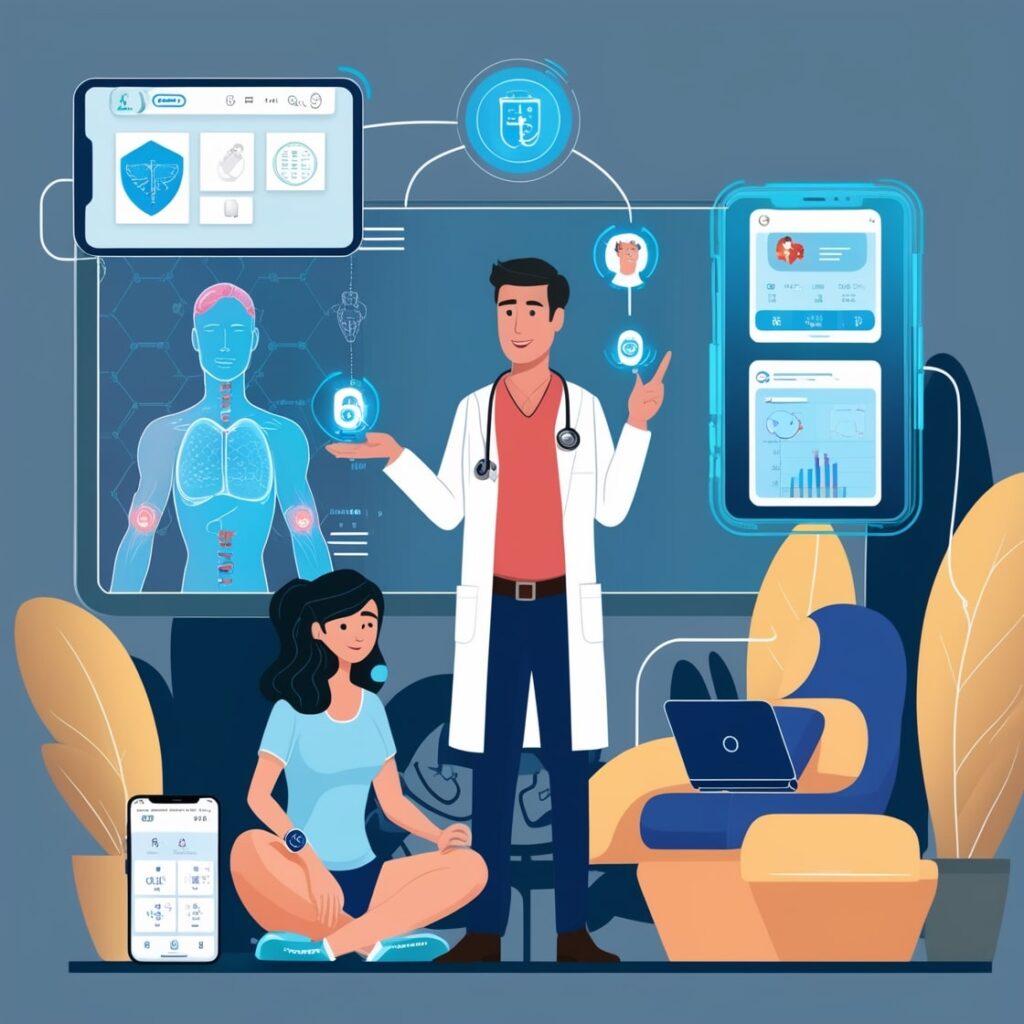
Real-time health monitoring creates lots of data, and it can get pretty tough to analyze manually. AI acts as an intermediary in case such large amounts of data need to be analyzed quickly to draw out trends and alert users or healthcare providers if something seems wrong.
- Pattern Recognition: The data obtained allows AI to identify patterns, suspect potential faults, like irregular heartbeats or sudden spikes in blood pressure.
- Actionable Alerts: If there is anything of significance, AI can straight away alert the patient or a doctor and the action would be swift.
3. Increase in Patient Engagement
With the real-time data enabled by AI, patients will be more involved with their healthcare as they will be monitoring their health on a daily basis.
- Enabling Patients: The user can make better decisions related to his health because the real-time data is generated and suitable adjustment changes in daily life are made for adjustments.
Early Disease Detection
Early disease detection is particularly an exciting frontier of AI in monitoring health. This is because AI can analyze mass databases of health data, identify patterns at an early and minute level of change that heralds onset before symptoms are apparent.
1. AI-Powered Predictive Models
AI algorithms might take in input from nearly all sources of data like medical records, wearable devices, and even lab results, which would aid in the prediction of the possibility of a particular disease. This predictive potential can allow people to intervene earlier and may, in fact, have much better outcomes and even save lives.
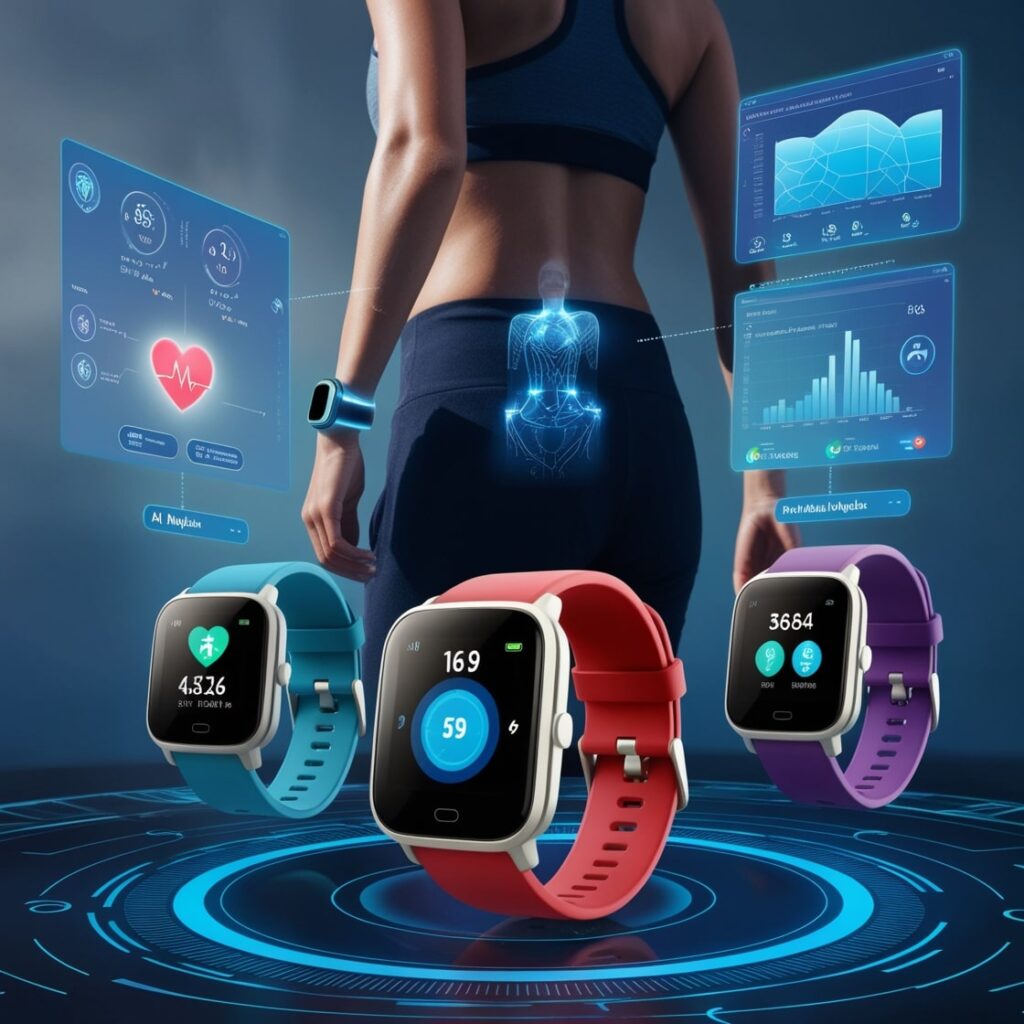
- Risk Factor Analysis: AI considers multiple factors like genetics, lifestyle, and environmental conditions assessing the risk of a disease for personalized health strategies.
- Continuous Monitoring: Real-time data will enable AI to highlight minor deviations from normal health patterns potentially indicative of the early stages of diseases like diabetes or heart disease.
2. Detection of Early and Latent Symptoms
For a wide range of diseases, as often with cancer or cardiovascular disease, there may only be scant symptoms noticed at an early point. AI systems manage to detect patterns that, when relied on by healthcare providers in use of standard methods of diagnosis may well not be so readily noticed.
- Pattern Recognition: AI can detect changes in heart rate, lung function, or cell growth over time that may sign the progression of the disease.
- Better Accurate Early Diagnosis: AI enables cross-referencing of current data with historical medical records so the detection rate of diseases, including cancer and neurological conditions, can be improved.
Personalized Health Recommendations
The delivery of personalized health recommendations is changing with AI. With the analysis of individual health data, lifestyle habits, and genetic information, AI allows the delivery of advice tailored to the specific health needs of a person, making healthcare more individualized and effective.
1. Data-Driven Personalization
AI forms a precise description of a person’s health by gathering information from various sources, such as wearable devices, health apps, and medical records. This helps the AI provide personalized recommendations for better health that are much more accurate than general advice.
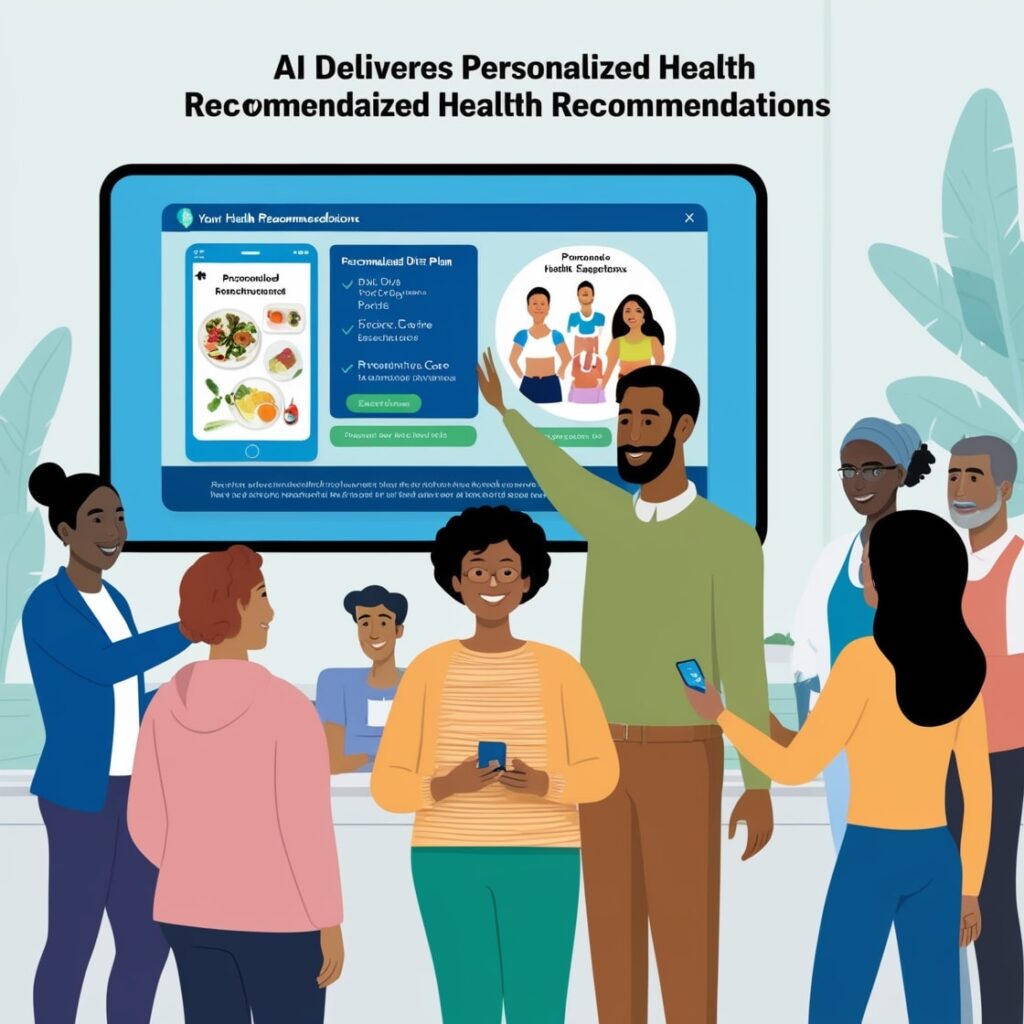
- Personal Diet Plans: With regard to the health data of an individual, AI can even recommend specific diets for optimizing nutritional intake about problems like diabetes, heart disease, or even fat loss.
- Personalized Workouts: AI will give recommendations that are personal to the client’s fitness level, goals, and/or medical condition regarding an overall safe and effective exercise.
2. Lifestyle Changes
AI does continuous tailoring based on lifestyle and/or health changes in the client. For example, that might be certain changes in medication dosages, change in dietary needs, or perhaps a change in workout regimen. Well, AI makes sure that its recommendations have a remainder and validity over time.
- Real-Time Adjustments: AI can adjust recommendations in real time using data from wearables on sleep patterns, stress levels, or daily activity-all to keep one in optimal health.
- Preventive Measures: AI can predict with the data available the potential health problems that can arise and thus recommend appropriate preventive measures like what activities to perform for reducing stress or dietary changes to avoid further issues.
3. Behavioral Insights for Better Health
AI doesn’t just look at physical health, but rather looks into behavioral data to give suggestions for enhancing overall living.
- Mental Health Support : AI-based tools can be used to provide suggestions about mindfulness practices or stress-relief techniques based on detected stress levels or mood patterns through real-time monitoring.
Future of AI in Health Monitoring
AI is likely to transform how healthcare is approached and moved forward in terms of advanced, personalized, and proactive healthcare.
1. Integrating with Wearables and IoT Devices
Even deeper fusion with wearable technologies and Internet of Things will characterize the future. Such intelligent devices will also offer continuous, real-time health monitoring that will better showcase the overall health of an individual.
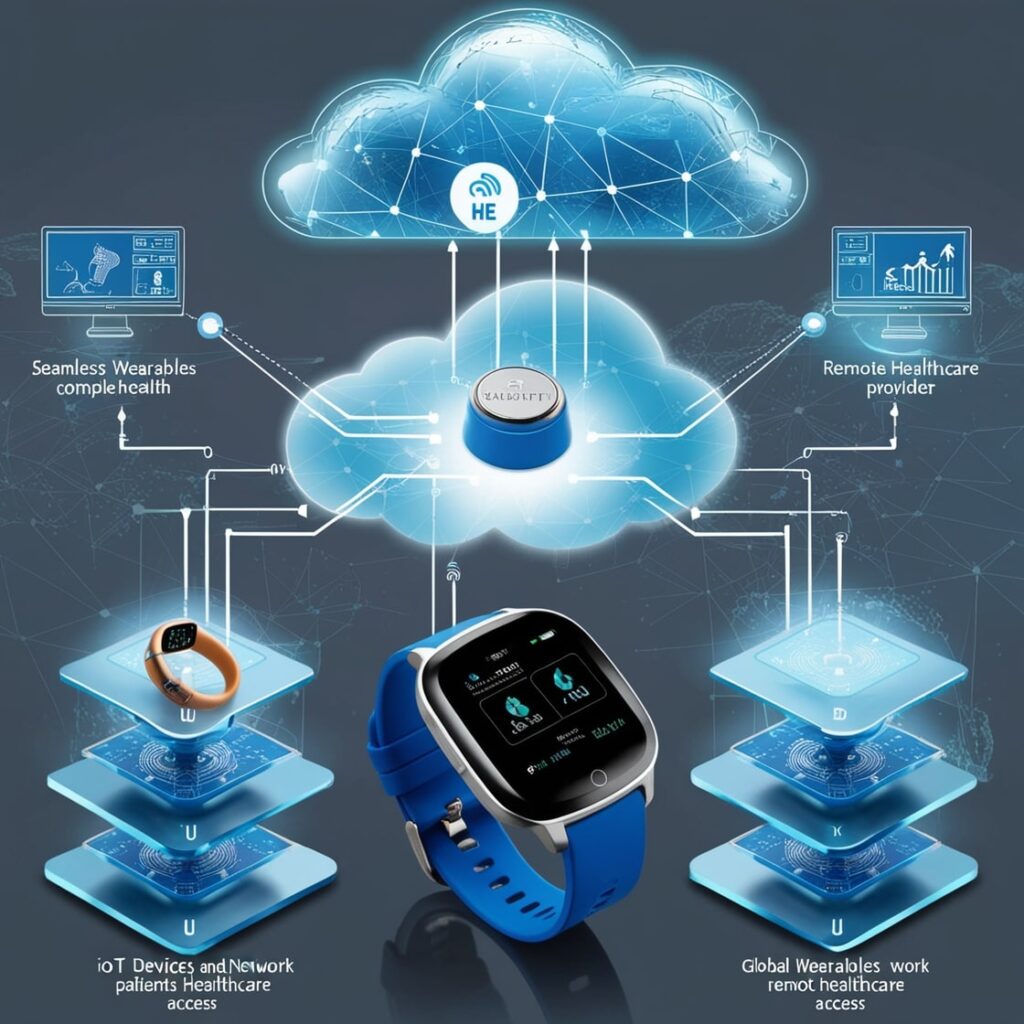
- More Intelligent Wearables: Future wearables will track and recognize more than just basic health metrics such as but also complex health conditions like sleep disorders or respiratory problems with more accuracy.
- Seamless Data Flow: AI-powered IoT devices will make it possible to share direct data between patients and healthcare providers, eliminating a patient’s need to visit hospitals to intervene in real time.
2.AI-Driven Predictive Healthcare
Predictive Healthcare It will predict illnesses and conditions long before symptoms occur through enhanced predictive capability, transforming from reactive care to preventive care, thereby revolutionizing health outcomes.
- Advanced Predictive Models: The Genetic Information, Lifestyle Data, and Environmental Factors will be used by AI to precisely predict the diseases.
- Personalized Preventive Plans: Preventive care plans will be designed by AI based on a patient’s specific health profile, keeping the potential risk factors of disease development at an absolute minimum.
3. Telemedicine and Remote Healthcare
With AI, telemedicine will be dramatically extended to reach more parts of the world and ensure that healthcare can reach everyone as patients get connected with doctors from remote places. Health care now will be more efficient and effective because AI will introduce real-time monitoring and diagnostics at the forefront.
- AI-Assisted Diagnostics: AI systems will in the future assist doctors in remotely making accurate diagnoses based on a patient’s data received through smart devices.
- Global Access to Healthcare: AI in health monitoring will enable remote healthcare to reach underserved populations and offer quality care irrespective of location.
Conclusion
AI in health monitoring is marking a new era of personalized, efficient, and proactive healthcare. Real-time data collection up to early disease detection and personalized recommendations through predictive healthcare, AI transformed ways in which we have to manage our well-being. The technology will bring even more benefits as it continues to grow, making health care more accessible, precise, and therefore, customized for every person. Stunning promises lie ahead in terms of the future of health monitoring through AI, where people take control of their health for better health management and medical professionals deliver more perfect care with timely insights.
Reade More
Ovarian Cancer : Types, Causes, Symptoms and Stage
AI in Health Monitoring, AI in Health Monitoring,AI in Health Monitoring,AI in Health Monitoring,AI in Health Monitoring,AI in Health Monitoring,AI in Health Monitoring,AI in Health Monitoring,AI in Health MonitoringAI in Health Monitoring,AI in Health Monitoring


